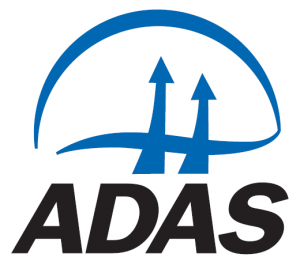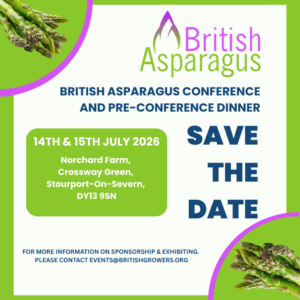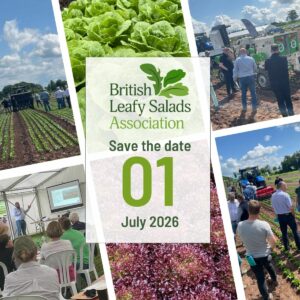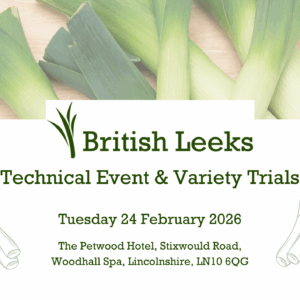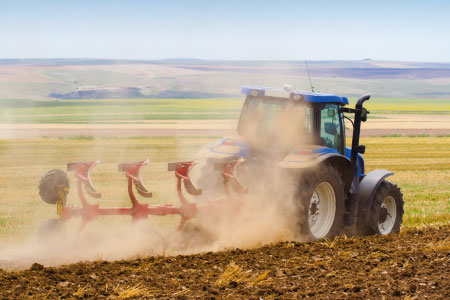
The INNO-VEG project is developing innovative methods for carrying out research into field vegetable and potato crops. The four-year project began in August 2018. This year, a programme of 48 field experiments has been set up in the UK, France, Belgium and the Netherlands to develop an overarching protocol for integrating crop sensing data into field research methodologies. ADAS, an RSK company, leads the project in the UK; the partners are Inagro in Belgium, Delphy in the Netherlands and ARVALIS – Institut du vegetal in France.
Reliable research methods are crucial to underpin the evidence base needed to meet the challenges of sustainable intensification of field vegetable and potato production. The project will evaluate the suitability of using crop sensing data to assess treatment differences in field experiments. Project lead and ADAS soil scientist Lizzie Sagoo explains, “We know that crop sensing data, for example, from drones or tractor-mounted sensors, can show up differences in crop performance across a field. We want to see whether these techniques accurately assess final crop yields. If they do, they can be used instead of the labour-intensive and expensive standard field assessments.”
Traditional crop research relies on replicated treatments in small plots and intensive measurements. It is usually led and delivered by agronomy, consultancy or academic organisations. Consequently, farmers typically only host experiments. They do not play active roles in the research, neither applying the treatments nor assessing their effectiveness. Moreover, this research model is expensive, and the budget is limited for research on field vegetable and potato crops.
“If we can show that crop sensing data can be used to assess differences in crop treatments, we can upscale to split-field or tramline comparisons. Then, we can adopt a farmer-led approach to delivering research in this sector. The model will enable farmers to apply treatments to different areas of a field using their own farm equipment and carry out accurate measurements using high-resolution crop data,” says Sagoo.
“We have developed approaches to bring scientific rigour to farmer-led research in combinable crops like wheat,” ADAS head of agronomics Daniel Kindred continues. “Treatments can be set up in line trials and statistically compared using yield maps from a combine harvester. The main barrier to adopting this approach is that yield mapping, although technically possible, is very rarely used for field vegetable crops. However, high-resolution spatial crop imagery can be easily collected during the growing season from all field vegetable crops. If this can be used as an indicator or a proxy for the final crop output, it can also enable field-scale research.”
In 2020, field validation experiments will test the protocol developed during 2019 in the field-scale research experiments to develop a framework for farmer-led research. The framework will then be tested in farmer-led field experiments during 2021. Information collected from farmer groups and field testing will be used to refine the framework to ensure the outputs are presented in formats that are easily understandable and written in sufficient detail to facilitate the adoption of the farmer-led approach.
This project brings together an internationally respected group of researchers with extensive experience of field vegetable and potato production systems, crop sensing techniques, spatial data analysis and on-farm advice. “Our ultimate aim is to provide farmers with a methodology for carrying out research on their own farms, where they can test new approaches such as varieties, establishment techniques or fertiliser management,” says Sagoo.
In addition to the field experiments, the project team is setting up a cross-border (the UK, France, Belgium and the Netherlands) network to facilitate innovation between the precision farming/sensor technology industry, research organisations and the field vegetable and potato crop sectors. The network is being developed by Delphy in the Netherlands and is due to launch later this year.
“The INNO-VEG innovation network will focus on facilitating innovation by realising the value of crop sensing technology in the delivery of field vegetable and potato research. We invite anyone with an interest in this area to join to network,” says network lead Cor Van Oers from Delphy.
The INNO-VEG project has received funding from the Interreg 2 Seas programme 2014-2020 co-funded by the European Regional Development Fund under subsidy contract No 2S05-032.
Dr Lizzie Sagoo
Principal Soil Scientist
